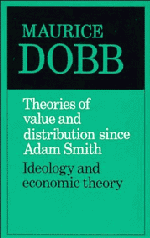Summary
At first sight it is very difficult to place J. S. Mill (1806–73) in the hierarchy of descent, especially in relation to the two branches, or lines of tradition, of which we spoke in the last chapter. From one aspect he was a direct lineal descendant of Ricardo, and according to his own statements and belief he was at the same time the defender of Ricardian doctrine against its critics and its elaborator. Certainly at the time he was regarded as the embodiment of Ricardian orthodoxy; and from 1848 until Marshall his Principles of Political Economy with some of their applications to social philosophy held a unique place as the accepted textbook on the subject. Bagehot spoke of his “monarchical influence” over his contemporaries, and said that from then on all students “see the whole subject with Mill's eyes”; adding that “they see in Ricardo and Adam Smith what he told them to see”. As son of James Mill, Ricardo's close friend at whose instigation the latter had written his Principles of 1817 and had entered Parliament, John Stuart as a youth had known Ricardo personally, had visited Gatcomb Park and been taken on walks by him; moreover he was trained in Political Economy by his father (at the age of 13) on Ricardo's Principles. At the same time he was by nature a systematiser and synthesiser (some would say eclectic); and in the Preface to his own book of 1848 he states it as his aim to write a treatise containing “the latest improvements which have been made in the theory”.
- Type
- Chapter
- Information
- Theories of Value and Distribution since Adam SmithIdeology and Economic Theory, pp. 121 - 136Publisher: Cambridge University PressPrint publication year: 1973



